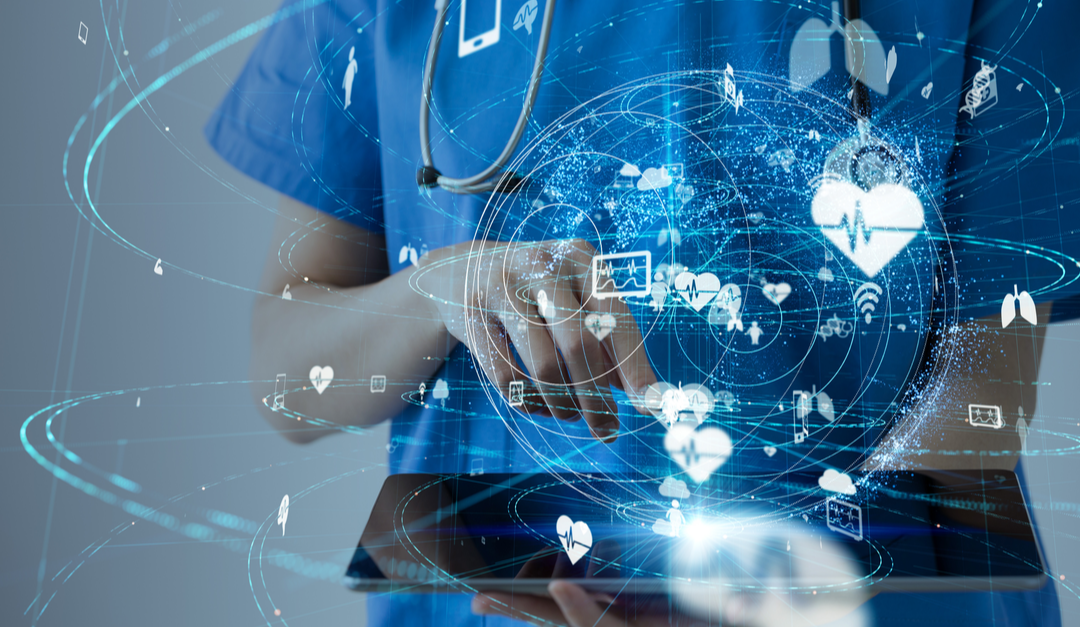As our world is constantly changing, the healthcare industry, especially clinical trials, are adapting to better serve patients and improve lives around the world. While healthcare is shifting to become more patient-centric, additional data from the patient’s day-to-day life is needed to enhance our understanding not only of the efficacy of a treatment, but also to better prevent diseases through improving predictive models and building accurate patient profiles. The recent popularization of utilizing real-world data (RWD), which is analyzed and transformed into real-world evidence (RWE), provides new insights previously not possible. RWE is consistently proving to advance healthcare, as it gives healthcare workers, pharmaceutical companies, CRO’s, and regulatory bodies better insight into how to treat and understand patient populations and their health, as well as strengthening the global fight against pandemic outbreaks like COVID-19.
So, what is real-world data and real-world evidence exactly? The FDA defines RWD as the collection of health information for a patient outside of randomized clinical trials. This data includes electronic health records (EHRs), patient surveys, and health data collected from technology like Fitbit or Apple watches, to name a few. Once analyzed, this data transforms into care-enhancing real-world evidence. While these concepts are fairly new, they can provide invaluable data in terms of patient feedback and real-life contextual understanding of treatment efficacy. Unlike randomized clinical trials, where the environment is controlled and where participants are typically not representative of entire populations, RWE gives broader insight into how the medical product may work in real life context, therefore allowing medical professionals to improve care with a new deeper understanding of their patients on an individual, case-by-case level. This data also allows regulatory bodies, like the FDA, to better understand public health needs as they write and implement policy. The data also informs research companies developing or improving medical products to market needs.
While many companies are recognizing the potential that RWD, and in turn RWE, have in better tracking patient health, one health technology company in particular is providing groundbreaking research for cancer patients. Flatiron Health, which focuses on improving cancer patient care, is working to increase its impact through collecting and organizing data into RWE. Such collection of RWE is well-structured and therefore accessible to healthcare professionals in cancer research and care. Such harnessing of RWE can change the way the medical professionals perceive and treat cancer across the globe. While the work and data Flatiron Health obtains is crucial in improving cancer patient care, the possibilities of RWE beyond oncology, particularly in response to pandemics like COVID-19, could serve to better track and therefore prepare for global viral outbreaks.
Through the use of AI technology, in partnership with health programs, RWD is already giving some insight into how it can help in the fight against COVID-19. For example, researchers on the Healthy Nevada Project, a population study, are looking at risk factors for populations with increased vulnerabilities through combining information from their genetics, clinical data, environmental data, and now COVID-19 data through an online survey from consenting individuals. These insights are helping Nevada (and several other locales) better understand risk factors within their communities, as well as track the viral spread more accurately. It also provides hope that moving forward, other regions within the United States and outside of it will utilize RWE to better prepare for and respond to pandemics.
As regulatory bodies around the world begin to recognize the positive impact RWE can serve to their diverse communities, including the global understanding of disease, the need for localizing the data is imperative in advancing the global populations’ health. While the interpretation of RWD is improving alongside technological advancements, providing better understanding of important implications to global populations, it also illustrates the need for adaptive cross-border communication with an intimate understanding of strict regulatory policy requirements for RWE in compliance with CTD/eCTD submission.
The potential for RWD and RWE to improve the treatment, prevention, and tracking of diseases is monumental; even now it’s displaying useful precision in response to global health challenges. While such data is not yet at the point of supplementing randomized controlled trials, the addition of RWE helps paint a broader, fuller picture of the patient’s life. As the methods of capturing RWD and transforming it into RWE continue to develop, there is no doubt that they will become key players in improving R&D for medical products around the world.
FDA. (2n.d., March 23). Real-World Evidence. Retrieved from https://www.fda.gov/science-research/science-and-research-special-topics/real-world-evidence
About CSOFT Health Sciences
CSOFT Health Sciences provides end-to-end medical translations for all phases of the product lifecycle, from pre-clinical to post-launch. We also specialize in market access consulting and CTD/eCTD submissions with the FDA, EMA, and NMPA. Our operations are compliant with ISO 17100 and certified in ISO 9001:2015 and ISO 13485:2016, ensuring our customized solutions meet the rigorous regulatory requirements of global submissions.
About CSOFT
CSOFT International is a leading provider of cross-border communications for enterprises seeking growth in global markets. Our expertise in localization, documentation, and branding encompasses a full range of end-to-end content and consulting services that we deliver in over 250 languages. With a focus in health sciences and smart technology, we work closely with our clients to deliver precision solutions to the challenges of engaging markets, consumers, and regulatory environments worldwide.
